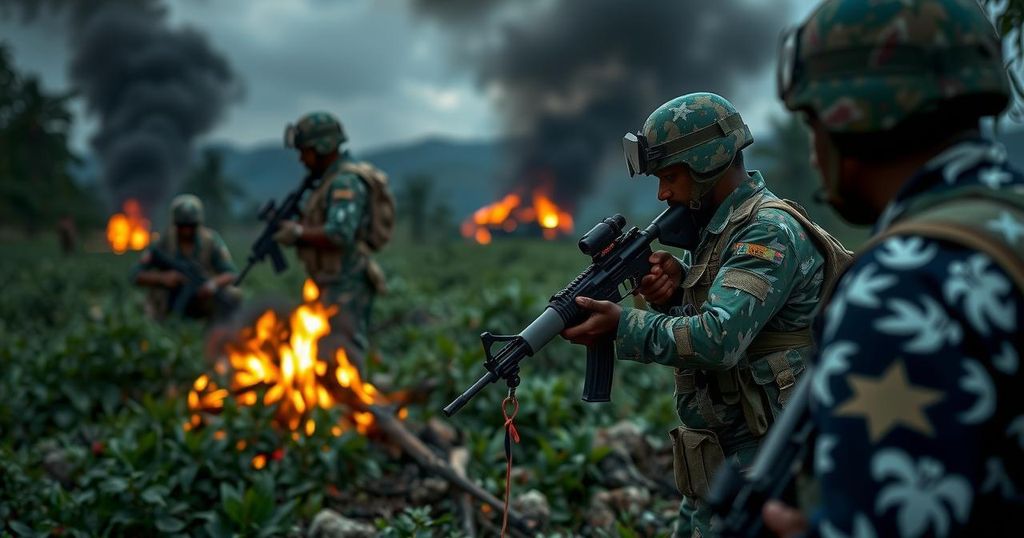Angola has accused M23 rebels, supported by Rwanda, of violating a ceasefire agreement in the DRC following recent clashes in North Kivu province. Despite efforts mediated by Angola, fighting erupted as M23 forces captured the town of Kalembe from government-aligned Wazalendo militias, threatening ongoing peace initiatives.
Angola has formally accused the Rwanda-supported M23 rebels of breaching a ceasefire agreement in the eastern region of the Democratic Republic of the Congo (DRC). This ceasefire, which had been established in early August through Angolan mediation, aimed to mitigate ongoing hostilities between the DRC army and the predominantly Tutsi militia M23. However, recent clashes on Sunday resulted in renewed violence between M23 forces and a government-aligned militia known as Wazalendo, occurring in a town within North Kivu province. Local reports indicate that M23 insurgents captured the town of Kalembe after engaging in combat with Wazalendo groups. The Angolan government, recognizing the seizure of Kalembe as a “flagrant violation” of the existing ceasefire, condemned the actions of M23, labeling them as hostile to ongoing peace initiatives aimed at resolving the conflict. Fighting erupted early Sunday morning, persisting for several hours, with M23 forces ultimately emerging victorious and taking control of the town. Although local residents reported intense fighting involving armed M23 rebels and Wazalendo militiamen, it remains unverified whether Rwandan or Congolese military personnel were implicated in the altercations. Marcellin Shenkuku, a spokesperson for Wazalendo, later stated that the militia had regained control of Kalembe, asserting no official involvement from Congolese armed forces in the recent clashes. This assertion draws attention to the complex dynamics of allegiances and authority within the region. Angola’s denunciation of this incident is noteworthy given the typical silence surrounding frequent confrontations between M23 and Kinshasa-affiliated militias. The M23 group, which launched an offensive in late 2021, has significantly expanded its territorial control in eastern DRC, which has precipitated a humanitarian crisis affecting thousands of displaced individuals. Kalembe, home to approximately 40,000 residents, is strategically located near essential resource routes that provide access to valuable minerals such as gold, coltan, and diamonds, thus embedding it further in the region’s historically fraught landscape of conflict and exploitation.
The conflict in the eastern Democratic Republic of the Congo has a protracted history, exacerbated by regional rivalries and the presence of various insurgent groups vying for control over mineral-rich territories. The M23 rebel group, primarily composed of ethnic Tutsis, has its roots in the tumultuous events surrounding the Rwandan Genocide and ensuing conflicts. Following a peace agreement in 2013, the group initially disbanded but resurfaced in 2021, seizing territory amidst ongoing violence and instability. The region, inhabited by a multitude of competing factions, has faced chronic violence for over thirty years, perpetuating humanitarian crises and mass displacements.
In conclusion, the recent accusations by Angola against the M23 rebels highlight the fragile nature of the ceasefire in the DRC and the ongoing challenges to achieving lasting peace. The capture of Kalembe by M23 forces signifies a deterioration of the truce, which, if unaddressed, could further escalate violence in a region already plagued by conflict. The situation demands urgent international attention and cooperative efforts to stabilize the DRC and protect its civilian population from continued suffering.
Original Source: www.barrons.com







